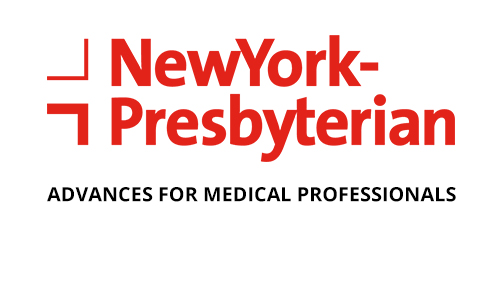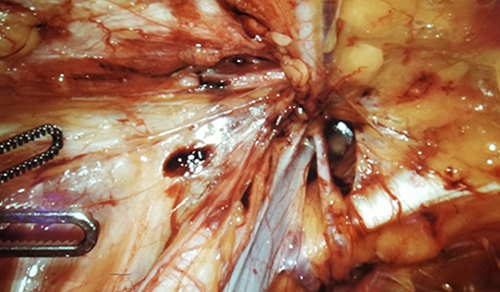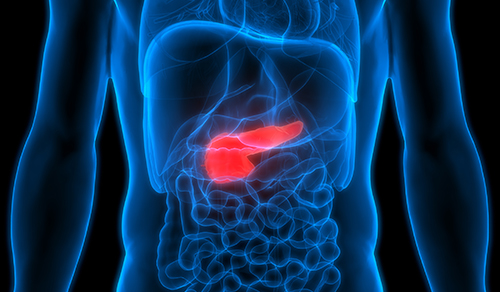A Dedicated Team Focuses on Urinary Disorders

Dr. Matthew P. Rutman
Each year, a team of specialists in the Department of Urology at NewYork-Presbyterian/Columbia University Medical Center diagnoses and treats more than 6,000 patients with urinary disorders. Using the latest diagnostic testing and technology available, these urologists — Matthew P. Rutman, MD, Kimberly L. Cooper, MD, Doreen E. Chung, MD, and Gina M. Badalato, MD — provide expertise in nonoperative, minimally invasive, and reconstructive procedures. They bring their combined skills and experience in a range of treatment options for urinary disorders, including voiding dysfunction and urinary tract infection. At the same time, they are pursuing clinical research — individually and collectively — in a number of areas critical to improving treatment outcomes.
As Director of the Center for Voiding Dysfunction and Female Urology, Dr. Matthew Rutman treats both men and women with voiding disorders. “Many patients can be managed successfully with medical therapy, as well as behavioral and dietary changes,” says Dr. Rutman, who is skilled in reconstructive surgery for vaginal prolapse, urethral diverticulum, and vesico-vaginal fistulae. “For those who do require surgery, we offer a variety of techniques depending on the complexity of the problem. These include minimally invasive procedures, such as robotic, vaginal, or transurethral surgery, which can be performed on an outpatient basis and can result in quicker recovery times.”
The Columbia team relies on selective use of ancillary testing that includes urodynamics, cystourethroscopy, and residual urine volume measurements, in combination with a thorough history and physical, to counsel patients and help predict success of surgical outcomes. “In the past, the treatments we had for refractory over-active bladder, for example, left a lot to be desired,” says Dr. Rutman. “They involved significant procedures with hospital stays and difficult convalescence. There were also risks from surgery, as well as significant side effects of medication. But great progress has been made.”
Newer modalities include InterStim®, an option when conventional treatments, such as medications, pelvic exercises, or bladder retraining, have failed to help. InterStim involves implanting a device that delivers electrical impulses to the sacral nerve. “InterStim has been FDA approved for 20 years, but a number of advances have made it even more successful, including its smaller size and lighter weight,” says Dr. Rutman. “Essentially, it is a bladder pacemaker that modulates the bladder voiding reflex arc and can be used for an overactive or an underactive bladder.”
Percutaneous tibial nerve stimulation is the least invasive form of neuromodulation used to treat overactive bladder and the associated symptoms of urinary urgency, urinary frequency, and urge incontinence. “We offer a newer version of percutaneous tibial nerve stimulation that has worked very effectively,” says Dr. Rutman. “We place an acupuncture needle just above the ankle and are able to effect the same response that InterStim elicits. The half-hour procedure, which can be performed in the office, is done once a week for 12 weeks. It is not a cure, but oftentimes we can achieve at least 50 percent improvement in a patient’s symptoms.”

Dr. Doreen E. Chung
Dr. Doreen Chung specializes in voiding dysfunction, male and female urinary incontinence, neurogenic bladder, and female pelvic medicine and reconstructive surgery for pelvic floor disorders. She performs vaginal, robotic, and open surgery as appropriate. Dr. Chung has a particular interest in complex voiding dysfunction and reconstruction. A significant number of Dr. Chung’s patients with neurogenic bladder have spinal cord injuries or multiple sclerosis.
Recent publications and areas of research have focused on outcomes of different urological reconstructive surgical procedures. Dr. Chung looked at the safety of mesh in vaginal cystocele repair and found that mesh use was associated with an increased risk of complications. “While there is an increased risk of complications with transvaginal mesh repairs in all patients, benefits have to be weighed against risks because in certain patients with limited surgical options a mesh repair may still be the safest and most effective repair for a particular patient,” says Dr. Chung. For another project Dr. Chung looked at a large contemporary series of patients who underwent vesicovaginal fistula repairs. She found that luckily vesicovaginal fistulas are relatively rare in North America and that fistula repair is very safe and effective with vaginal repairs being associated with fewer complications than abdominal repairs.
A Special Interest in Urinary Tract Infections

Dr. Kimberly L. Cooper
Dr. Kimberly Cooper is Co-Director of the Voiding Dysfunction, Incontinence, and Urodynamic Center. Dr. Cooper has a particular interest in urinary tract infections with a specific focus on preventing and minimizing the use of unnecessary antibiotics. “In many cases, patients are prescribed either the wrong antibiotics or too lengthy a course,” notes Dr. Cooper. “Many patients can have symptoms that mimic a UTI, but they may not actually be bacterial related. These patients should not be treated with antibiotics.”
Dr. Cooper notes that patients often are treated presumptively over the phone and prescribed a course of antibiotics. She requires that her patients submit a urine sample for testing before starting an antibiotic. “We are trying to cut down on unnecessary antibiotic prescriptions because they have sequelae at both the individual patient level, in terms of potential side effects, and at the society level. All of these prescribed antibiotics contribute to increasing antimicrobial resistance.”
A recent study conducted by Drs. Cooper, Rutman, Chung, and Badalato looked at the utility of collecting catheterized specimens in a subset of women with vague urinary symptoms. “The majority of our cohort had false positive voided specimens, and if we had not obtained catheterized samples they would have received unnecessary antibiotics,” says Dr. Cooper. “When female patients present with vague voiding symptoms and positive voided urine cultures, catheterized specimens should be considered, especially when patients have unimpressive urinalyses.”

Dr. Gina M. Badalato
Seeking to bring awareness to the overuse of antibiotics for UTIs, Dr. Cooper recently surveyed practitioners in the Tri-state region, as well as in Tennessee through her collaboration with colleagues at Vanderbilt University. “Published infectious disease guidelines on managing patients who have bacteria in their urine have been available for years, but are not widely adhered to,” notes Dr. Cooper. “Our survey results demonstrate lack of awareness and observance of these guidelines. We also want to promote that the most narrow-spectrum antibiotics should be used. Broad-spectrum antibiotics tend to contribute more to resistance. In fact, in May 2016 the FDA issued a warning specifically saying that Cipro and Levaquin should not be used for the management of acute UTIs because of the risk of serious side effects. Unfortunately, this information is not widely known among providers.”
Dr. Gina Badalato, the newest member of the team, specializes in male and female voiding dysfunction, and stone disease. “There are several medical concerns for someone who continues to have urinary tract infections or blood in the urine,” she says. “Is it renal disease or a structural problem? Why is this person regularly forming kidney stones? What’s going on metabolically? We have focused diagnostic tools to tease out what’s going on and guide our recommendations for intervention. We can get very specific answers to these problems and also have a host of medications and procedures that we can offer our patients.”
Related Publications

Prostate Cancer: Perspectives on Therapeutic Advances

Urology: A Focus on Faculty 2017 Issue 2








